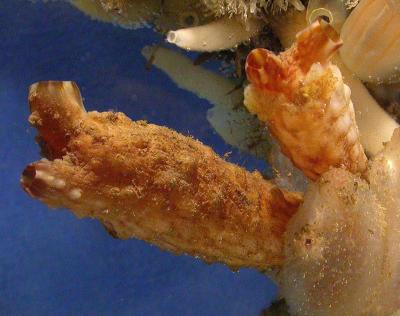Activities such as aquaculture, shipping and recreational boating have led to an army of marine alien species hitchhiking around the globe.
And only you can stop them.
Queen's University Belfast is attempting to find out exactly where and how non-native species get a foothold in a new area. To do this it is asking for help from the public to record what they have seen.
Part of the Marine Aliens consortium, co-ordinated by the Scottish Association for Marine Science, the project will use the information gathered to look at how invasions can be slowed or preferably prevented. It is very difficult to eradicate an organism once it has become established in a new area.

Professor Christine Maggs, from the School of Biological Sciences at Queen's, said:
"While exotic plants and animals like rhododendrons and grey squirrels are obvious in the British Isles, beneath the waves a hidden invasion of non-native species is taking place around our shores.
"Many marine aliens have left their natural enemies behind and may compete with native species with potentially disastrous consequences for aquaculture, tourism and other marine activities.
"But we can all do our bit for biosecurity - anyone who has a boat or who visits the shore can help by telling scientists what they have seen."






Comments